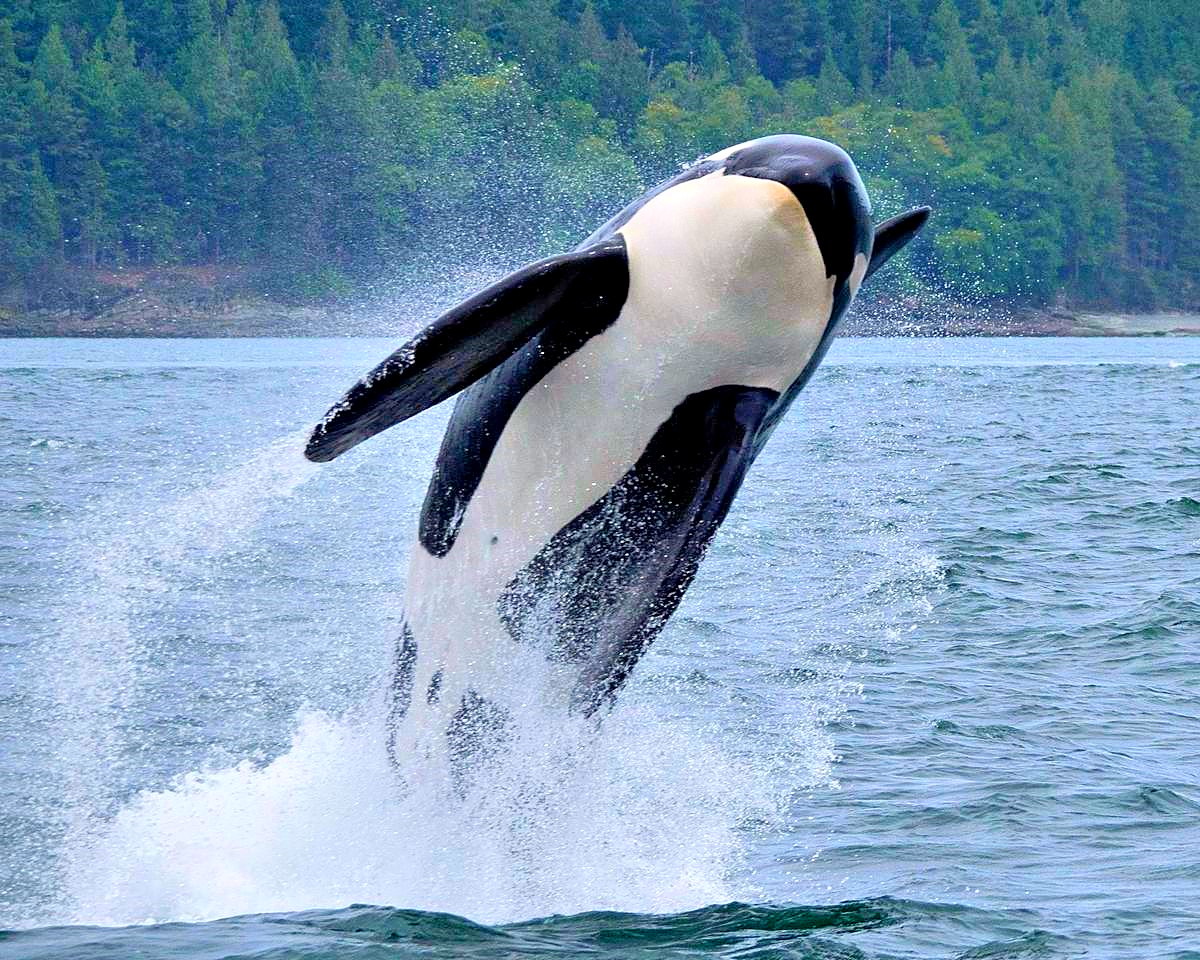Greetings, fellow ocean enthusiasts! 🌴 In recent years, the world has witnessed a perplexing phenomenon – orcas, also known as killer whales, have been displaying increasingly aggressive behavior towards boats and ships. From ramming into vessel hulls to dismantling rudders with their powerful jaws, these intelligent marine mammals seem to be sending a message, but what could it be? 🤔
🔍 Unraveling the Mysteries of Orca Attacks
The first recorded incident of this unusual orca behavior can be traced back to the summer of 2020 in the Strait of Gibraltar. A pregnant orca, later dubbed “White Gladis” (short for “Gladiator”), allegedly struck a vessel after being injured or entangled in fishing lines. This initial altercation ignited a chain reaction, with White Gladis’ family members and neighboring orca pods joining the fray. 🐳🔗
Within three years, over 500 boat-ramming incidents have occurred in the same region, primarily attributed to a group known as the “Iberian Orcas.” As of now, at least 15 individual orcas have been identified as active participants in these attacks, accounting for over one-third of the local population. 😯
🎯 Evolving Tactics and Motivations
What began as seemingly random collisions have now evolved into strategic strikes aimed at crippling a vessel’s steering capabilities. Orcas have been observed zeroing in on rudders, dismantling them with remarkable precision within minutes. This calculated approach has left experts pondering the motives behind such behavior. 🤷♂️
Some scientists speculate that the initial attacks stemmed from retaliation against human activities that threatened the orcas, such as boat strikes or entanglement in fishing gear. However, others suggest that the subsequent incidents could be a novel form of “play” or mischief, particularly among younger orcas seeking thrill and excitement. 🏆
The orcas’ intelligence and problem-solving abilities are well-documented, and their capacity for social learning cannot be underestimated. It’s possible that the aggressive behavior has spread through cultural transmission, with younger generations mimicking and refining the tactics initiated by their elders. 🧠
🐟 The Battle for Dwindling Resources
Another plausible explanation lies in the orcas’ struggle to secure their primary food source – bluefin tuna. As commercial fishing operations have depleted tuna populations by a staggering 90% since the 1970s, orcas may be lashing out in an attempt to reclaim their hunting grounds. 🎣
These apex predators have traditionally followed the migratory patterns of tuna, but with dwindling stocks, their age-old hunting strategies may no longer be sufficient. The attacks on vessels could be a desperate bid to drive away the competition and safeguard their access to the remaining tuna populations. 🐟🔱
In the past, orcas and humans coexisted harmoniously, with the intelligent mammals even assisting indigenous communities in cooperative hunting practices. However, the escalating competition for dwindling tuna stocks could be fueling resentment and prompting orcas to strike against fishing vessels. 🧑🌾
🌍 A Global Phenomenon?
While the majority of incidents have occurred in the Strait of Gibraltar, a concerning development emerged in June when orcas displayed similar aggressive behaviors towards boats in the northern waters off the British coast – over 3,200 kilometers (2,000 miles) away from the initial hotspot. 😨
This geographic expansion has raised concerns that the “orca ramming trend” might be spreading across the global orca population, potentially escalating into a larger conflict between these apex predators and human maritime activities. 🌊🚢
Scientists are closely monitoring other orca populations worldwide, searching for similar patterns of aggression. If the behavior continues to proliferate, it could have far-reaching implications for maritime safety, fishing operations, and marine conservation efforts. 🌐
🤖 Anthropogenic Influences and Environmental Stressors
Beyond the competition for diminishing food resources, experts are also exploring the potential impacts of human-induced environmental changes on orca behavior. Factors such as noise pollution, chemical contaminants, and habitat degradation may be contributing to increased stress levels and altered behaviors in these highly intelligent creatures. 🏭
Orcas rely heavily on echolocation and complex vocalizations for communication, navigation, and hunting. Excessive underwater noise from shipping traffic, offshore drilling, and other human activities could be disrupting their delicate sensory systems, potentially leading to heightened aggression or disorientation. 🔊
Furthermore, the accumulation of persistent organic pollutants and microplastics in the marine environment may be compromising the health and reproductive success of orca populations, adding to their overall stress levels and potentially exacerbating aggressive tendencies. 🌪️
🤝 Seeking Coexistence and Understanding
As the debate rages on, experts remain divided on whether these orca attacks signal the beginning of a full-fledged confrontation with humans or merely a transient fad destined to fade away. One thing is certain: fostering a better understanding of orca behavior and addressing the underlying issues, such as overfishing, habitat degradation, and pollution, will be crucial in promoting peaceful coexistence between our species. 🌿
Collaborative efforts between scientists, conservationists, and maritime industries are essential to mitigate potential conflicts and ensure the long-term survival of orca populations. This may involve adopting sustainable fishing practices, implementing stricter regulations on marine pollution, and establishing protected areas or migration corridors for these magnificent creatures. 🌊🛥️
Only time will tell if the orcas’ peculiar conduct is a deadly trend or a passing phase. For now, we can only observe, study, and strive to bridge the gap between our worlds, ensuring a harmonious future for both humans and these remarkable intelligent beings of the deep. 🌊🐳💙
Copyright © 2024 Hea1th.net

